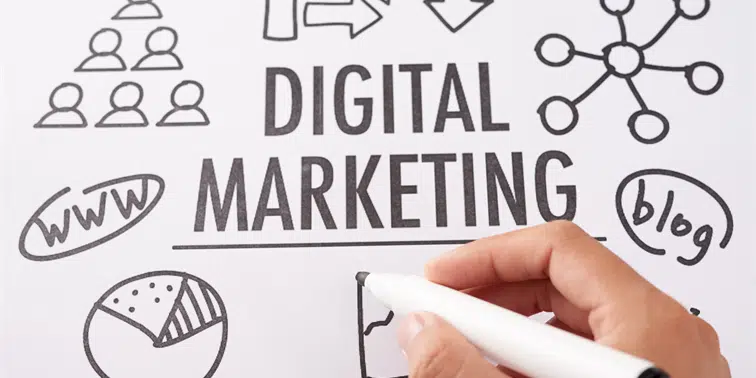Pay Per Click (PPC) campaigns create adverts online so when your business is not being viewed in the natural results, you can give it a little nudge with a paid campaign.
There’s a number of ways to conduct a PPC campaign and these include Google AdWords, Bing Ads, and social media boosts and ads. Here’s our tips for setting up and running a PPC campaign.
Google AdWords
While appearing on the first page in an organic search is the goal, if your website is new you need to give it a bit of time before your keywords and phrases start to take effect. So, this is where a paid campaign can give your website a boost in search as a paid for ad will pop up towards the top of the first page.
Understanding a Google AdWords campaign
- Set up the overarching Campaign: AdWords Accounts and PPC advertising are structured starting with a Campaign level, you can set up a number of Campaigns within this. Really think about your target audience for this campaign and the keyword you want to be known for.
- Create a subset of AdGroups: Each Campaign has AdGroups, so you can focus on targeting your audience with key messages. For example, you may want to focus on promoting CRM software so that would form one AdGroup within the Campaign. If you decide that you want to promote another service or product, you can create another AdGroup at any point Ensure each landing page is relevant in for said product of service.
- Focussed messaging for Ads: Each AdGroup has a number of Ads so you can have a range of messages per AdGroup.
- Maintain: Monitor and analyse the results and ‘throttle up’ or ‘down’ individual ads depending on how well they are preforming and how each PPC ad ranks.
- Be specific: Be specific with your keywords or negative keywords, and the geographic area you’re targeting.
Social Media Marketing PPC
You can also get targeted on social media with a PPC campaign.You need to carefully consider which channel is best for your business. If you’ve not already set up your channels, take a look at how we help our customers with their social media.
But firstly, let us explain the difference between ‘ads’ and ‘boosts’.
Social media channels offer an effective form of advertising, but you need to select what’s right for your business and the purpose.
- Boost: While allowing you to use a relatively small budget to reach a wider audience, it’s more about awareness and ‘likes’ increasing visibility for a short time through sharing your post more widely.
- Ads: By setting up an ad you’re enticing people to take action by clicking through to a website or urging you to call. The goal is to get people to engage and encourage them to do this via your website.
Remember who your target audience is when you tailor your messaging. Most PPC campaigns have a limited number of words you can use, so be clear and concise. Campaigns that are very specific to the service, product and price are much more successful than a generic advert. In order to use PPC marketing effectively consult our SEO company in Croydon.
Digital marketing resources:
Read some of our PPC related blogs for further information.



